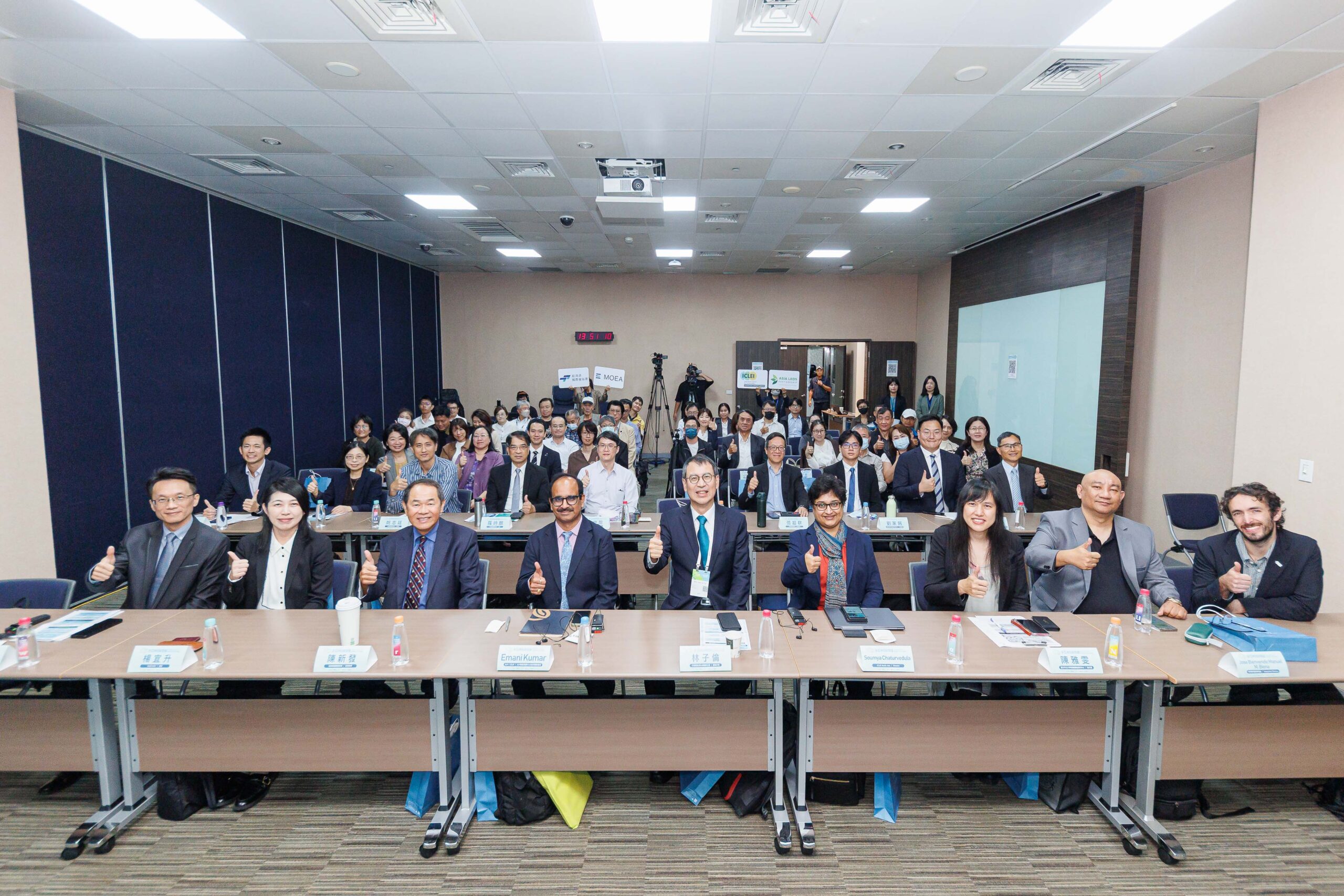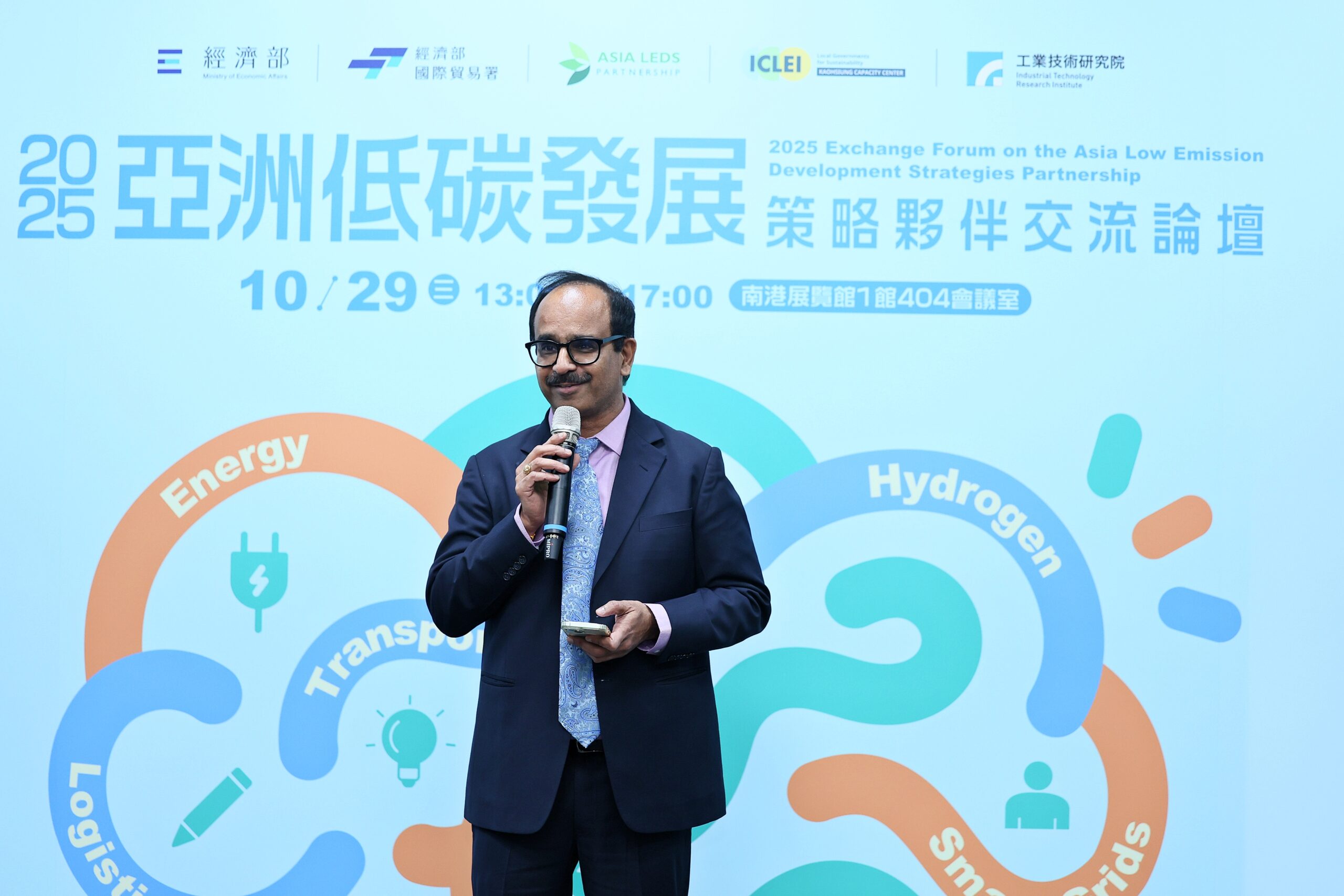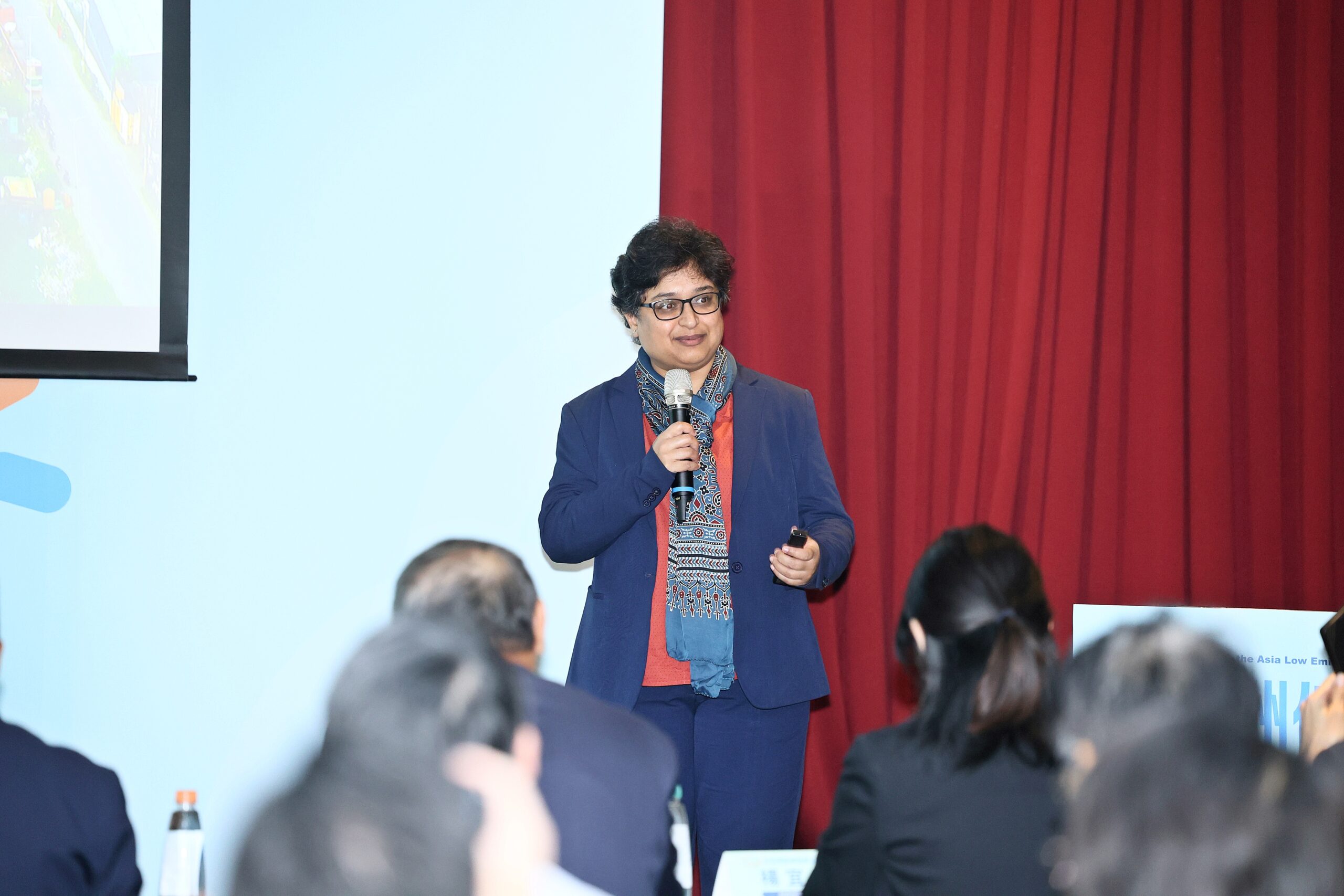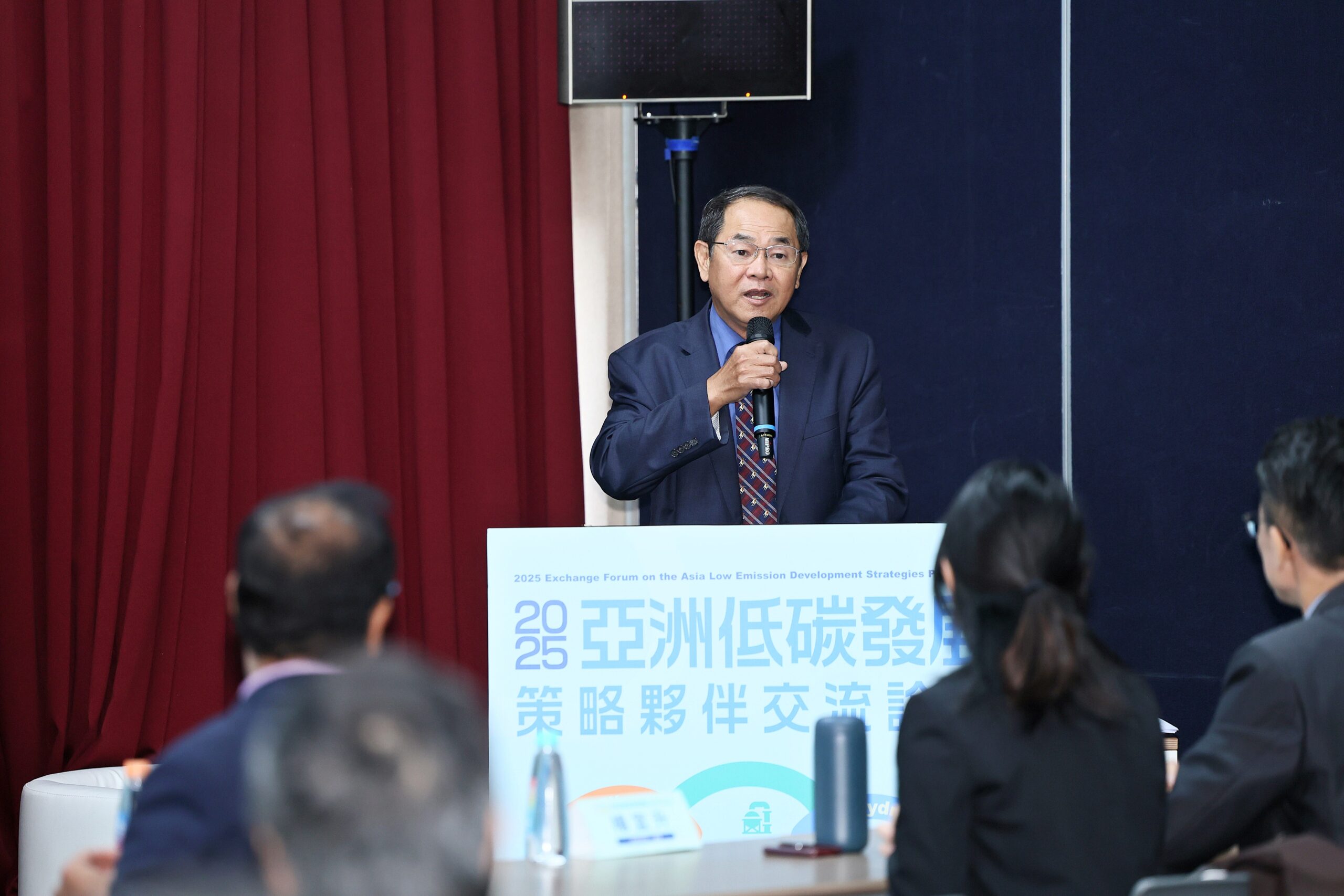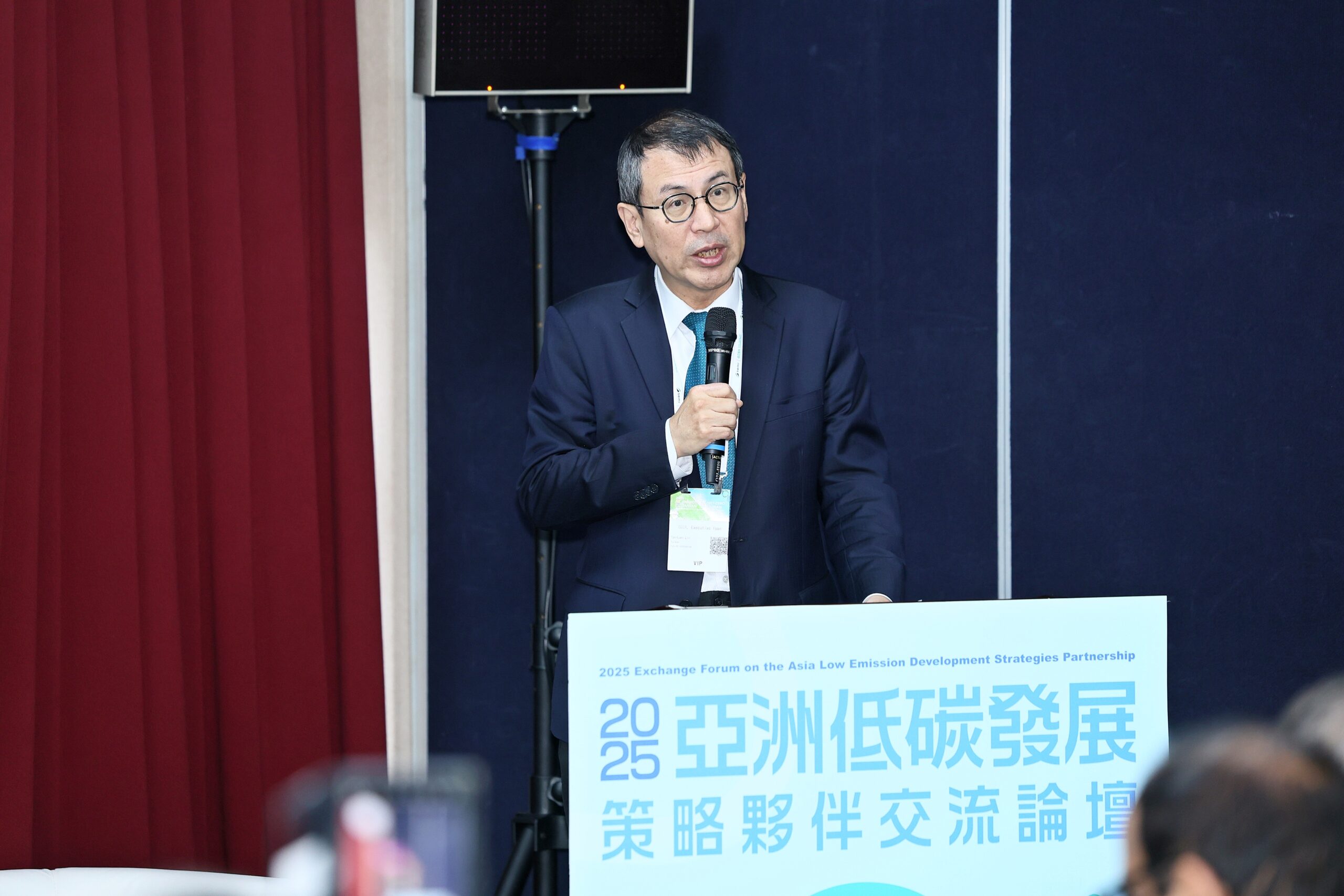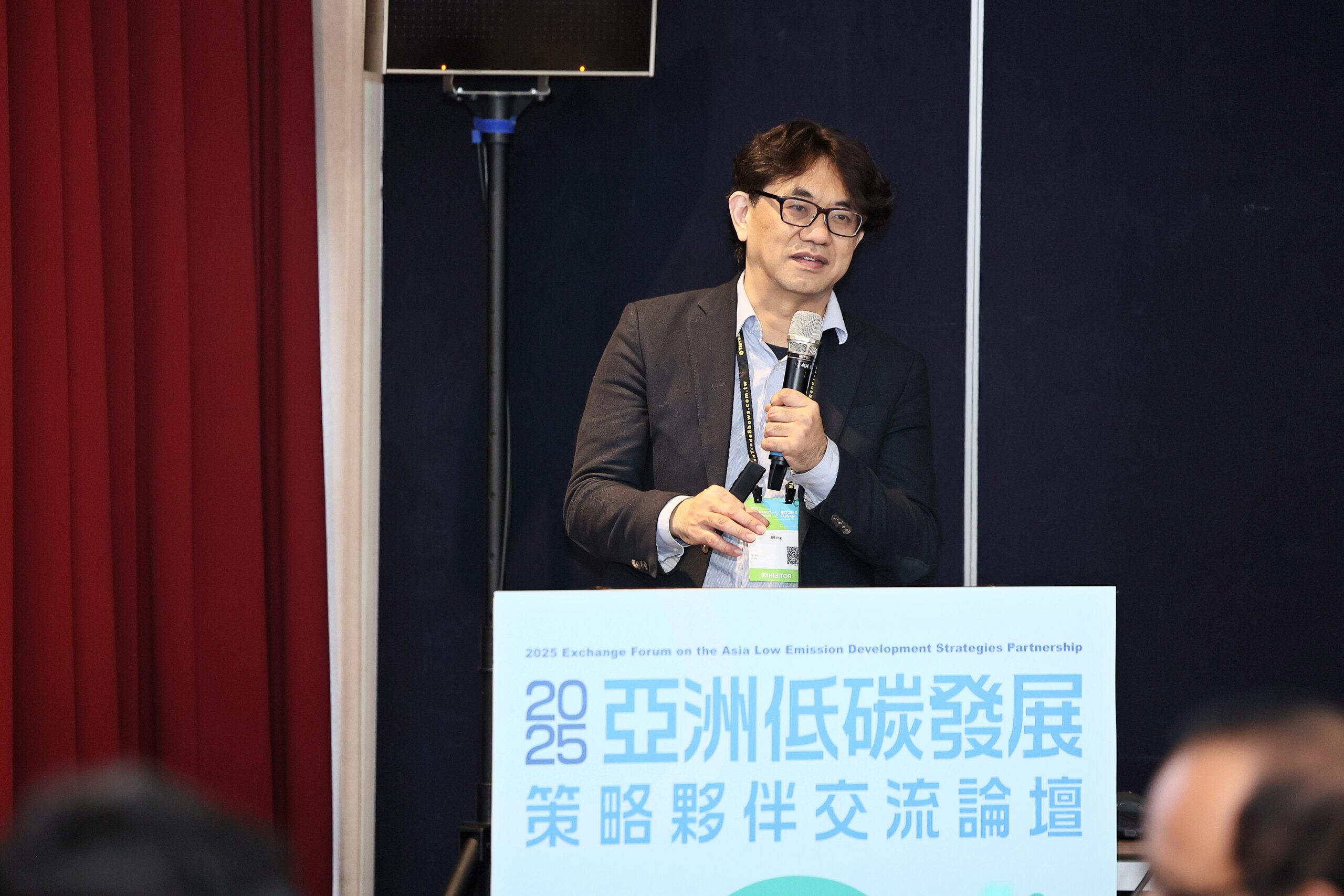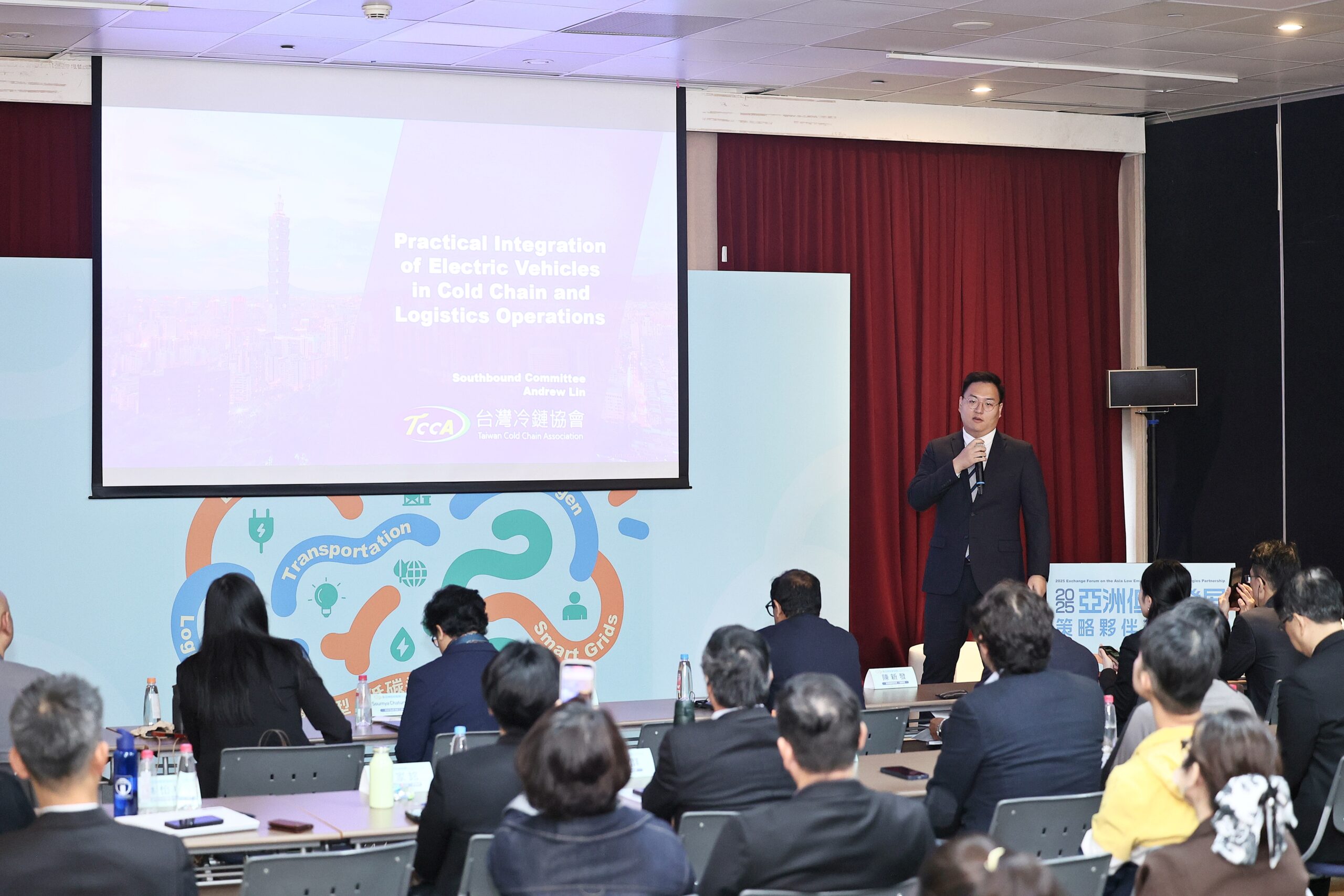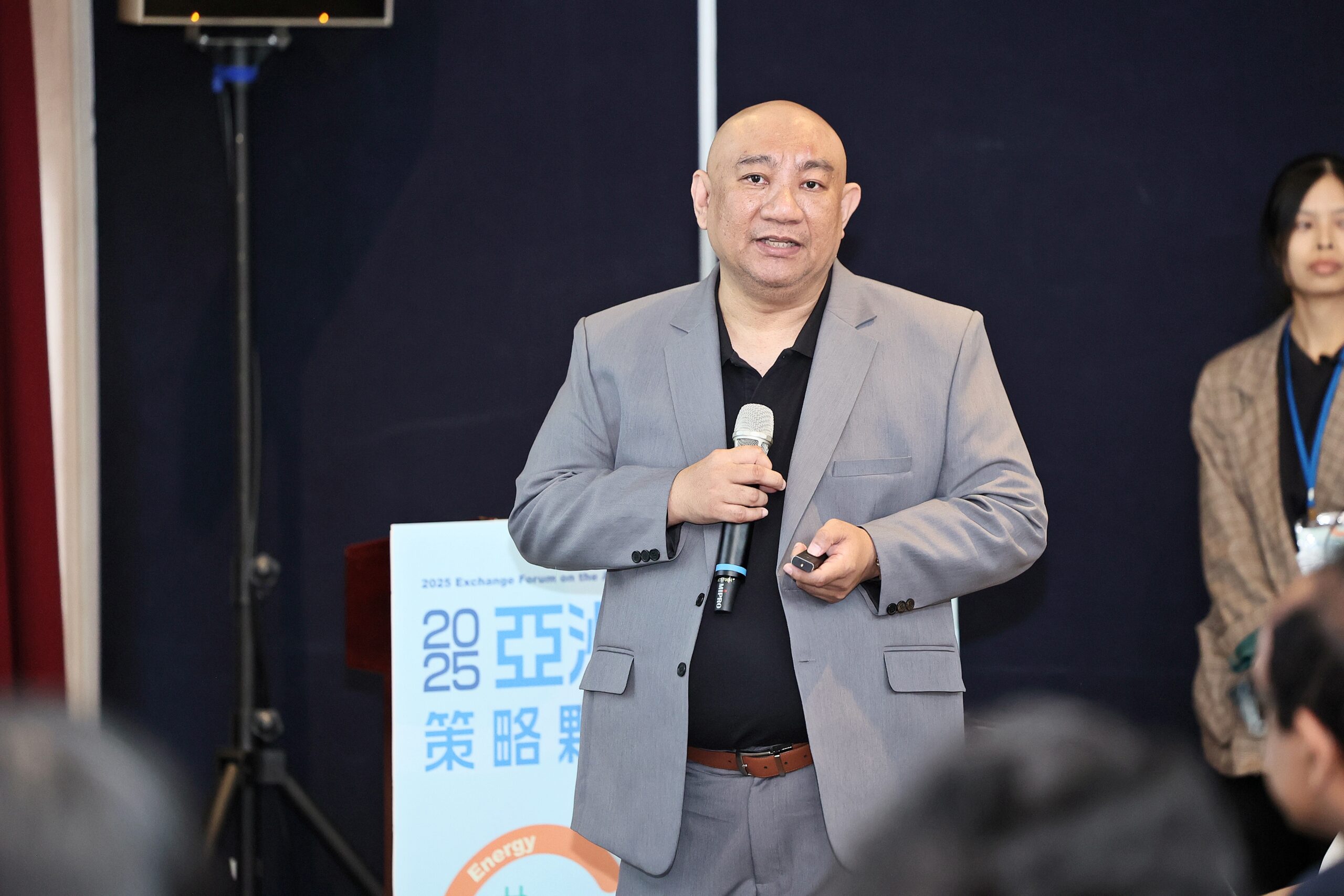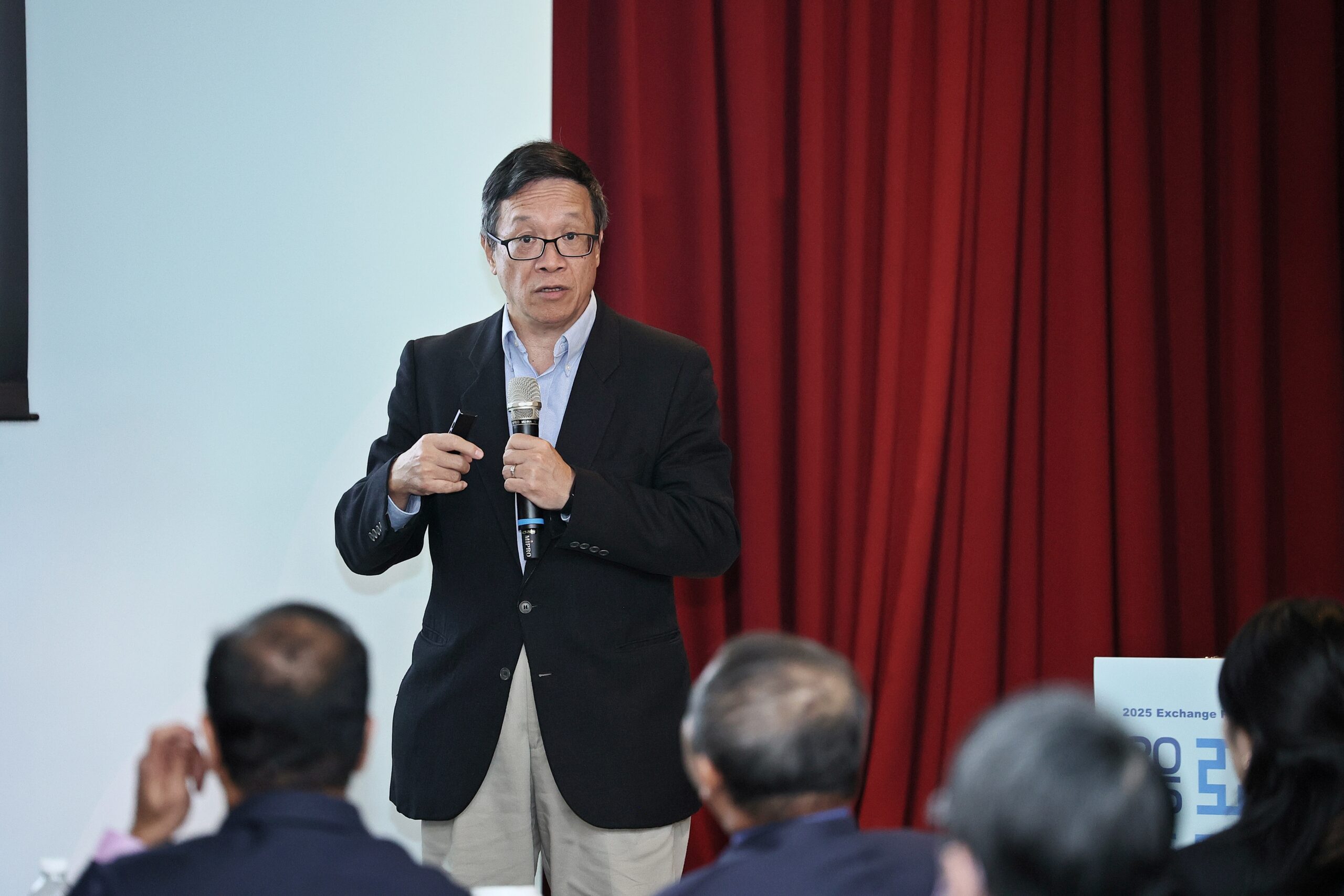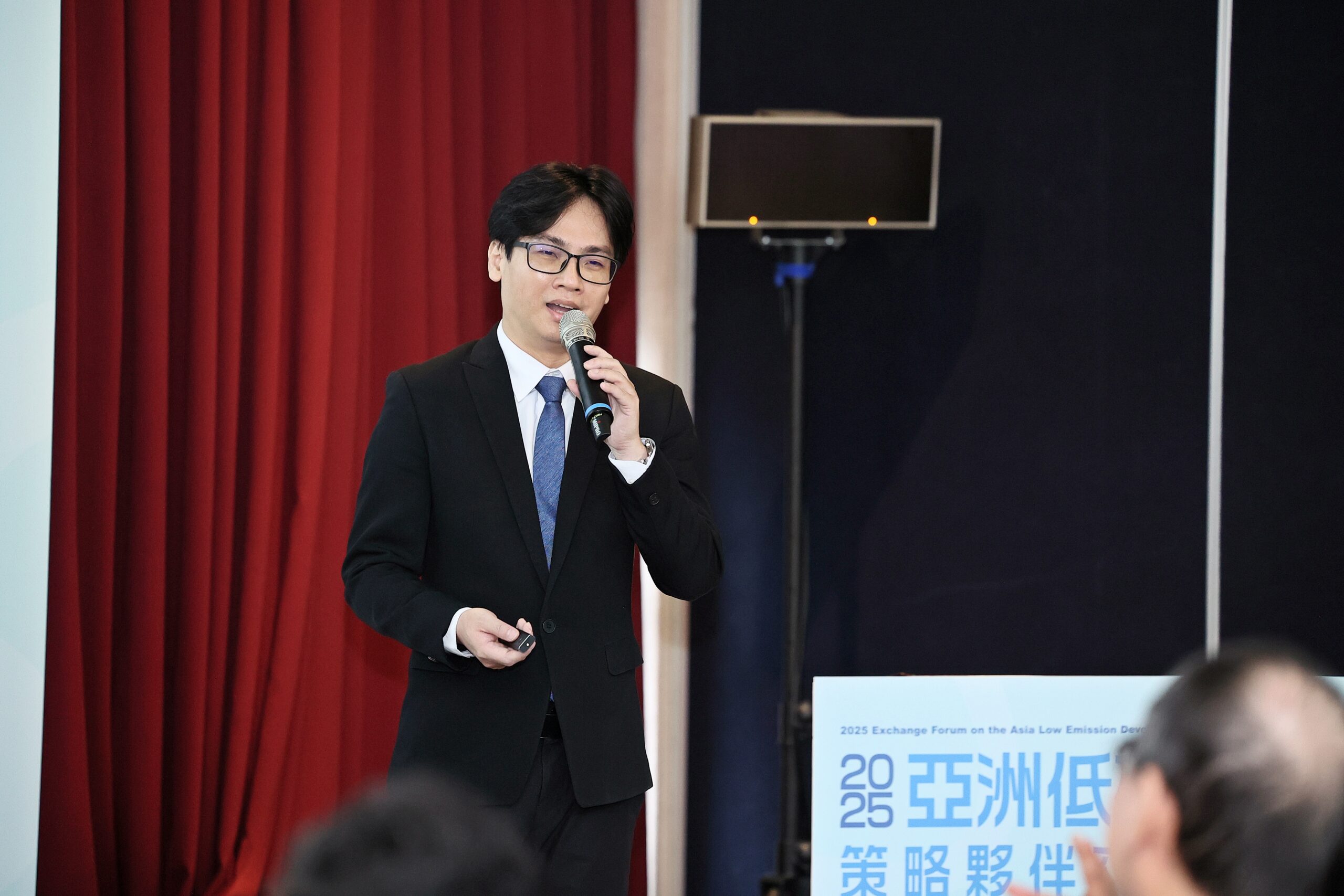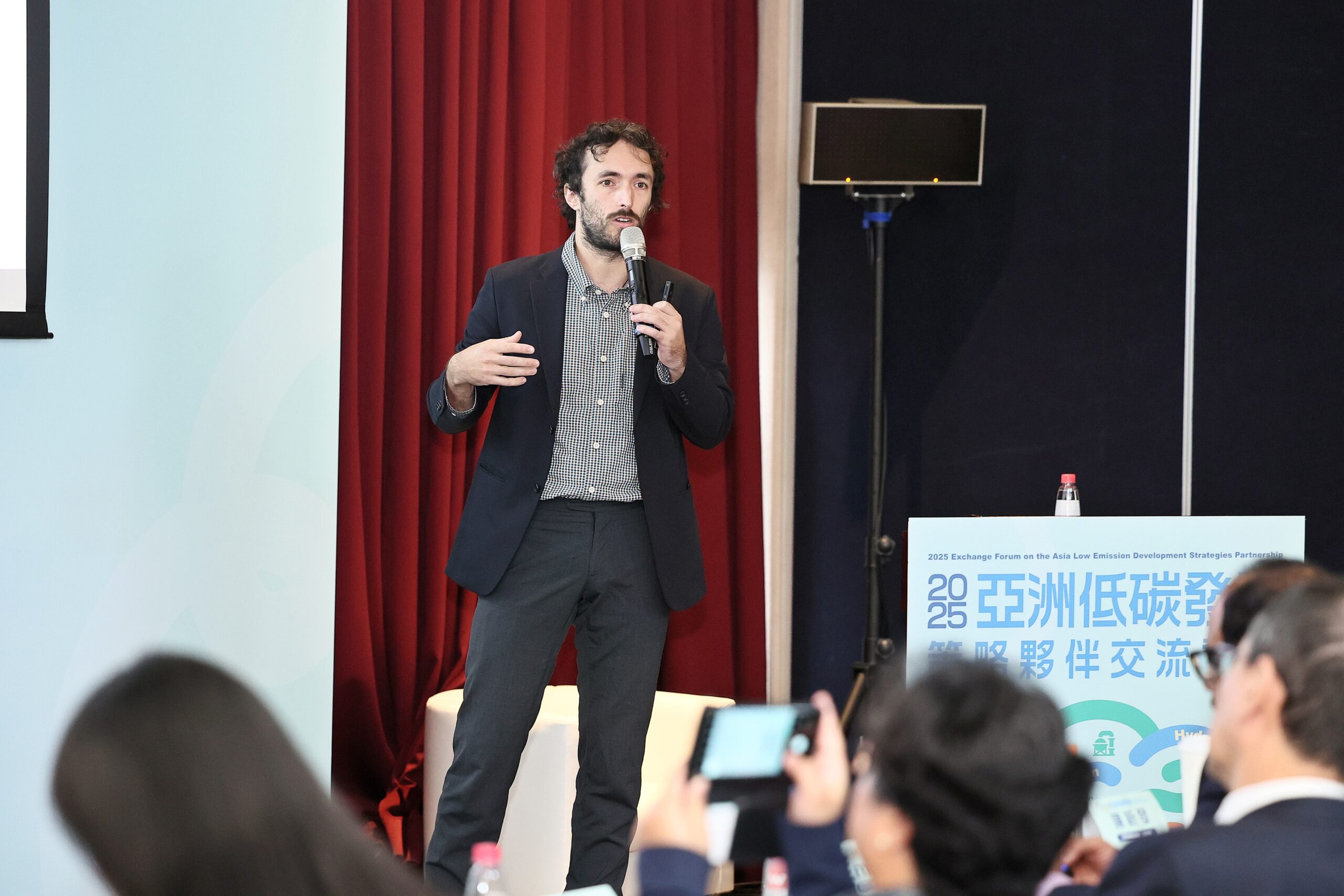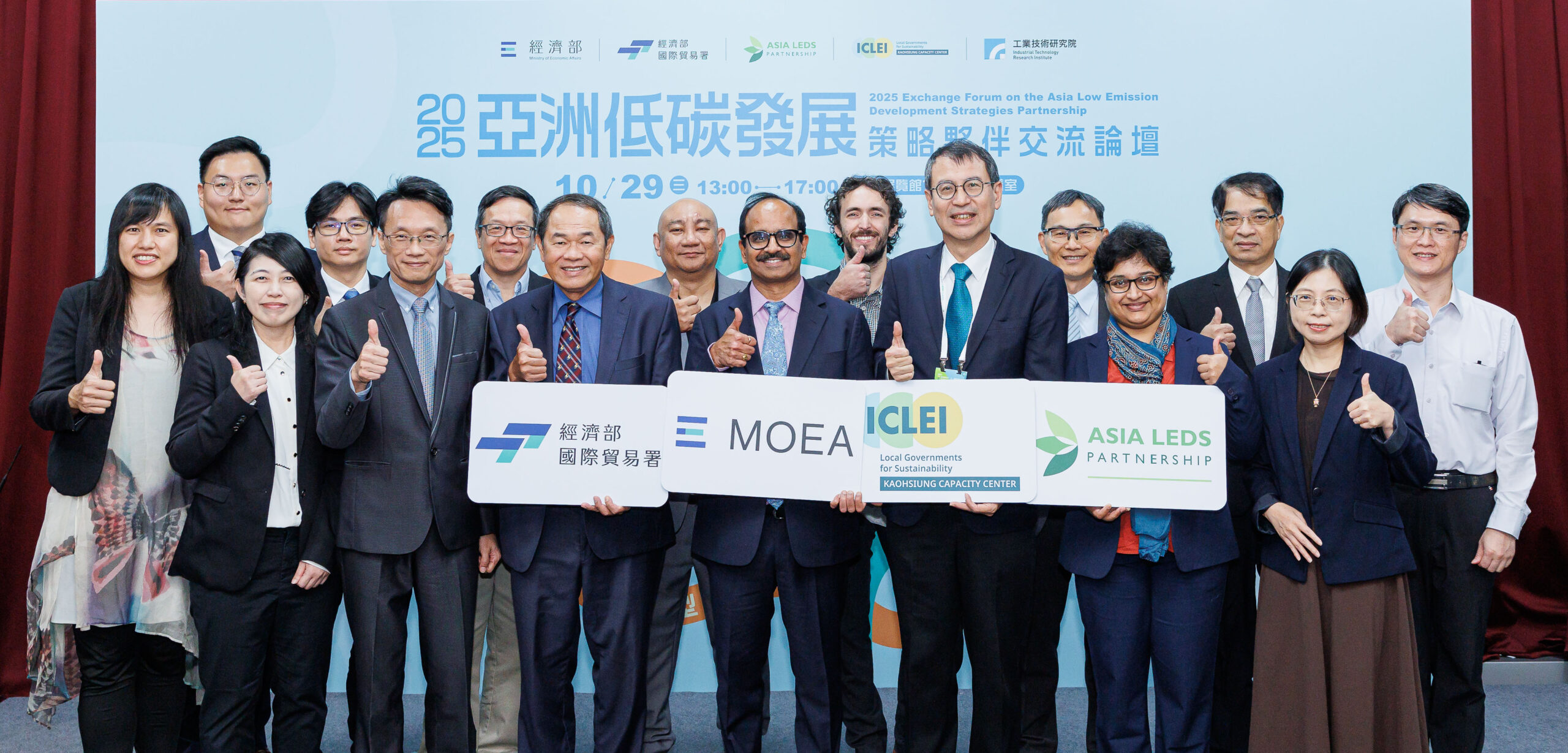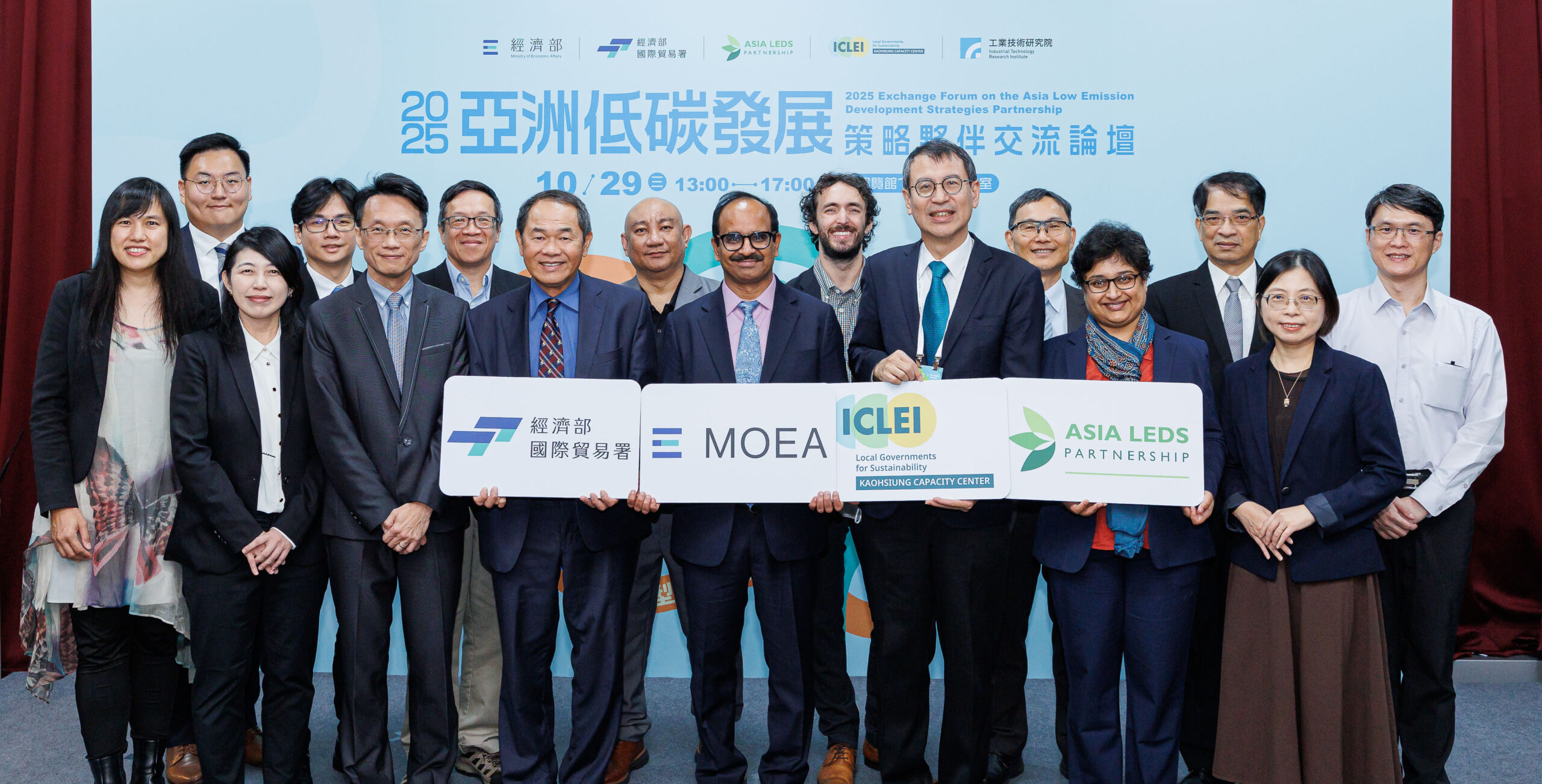Building Bridges for a Net-Zero Asia: ALP Charts Pathways to Resilient Energy and Mobility

At the “2025 Exchange Forum on the Asia Low Emission Development Strategies Partnership,” in Chinese Taipei on 29 October 2025, the Asia Low Emission Development Strategies Partnership (Asia LEDS Partnership) Secretariat played a key role in highlighting the successes, challenges and support needed for Asia’s progress toward the 2050 net-zero goal.
Established in September 2012, the Asia LEDS Partnership (ALP) is one of the three regional platforms of the Global Climate Action Partnership (GCAP) and is dedicated to advancing low-carbon development throughout Asia. The ALP is operated by the ICLEI South Asia Secretariat and currently includes 16 member countries
The 2025 Forum carried forward Asia LEDS’ mission of promoting policy dialogue, sharing practical experiences, and strengthening regional cooperation, while responding to COP30’s focus on decarbonisation and green growth. The Forum attracted participants from government, industry, academia, and research sectors across the Asia-Pacific region. It focused on the two core themes of “Resilient Energy Transition” and “Low-Carbon Transportation and Mobility Action”. The event comes at a significant moment in the run-up to COP30 in Belém, Brazil, where nations will report progress on their climate commitments and raise ambition for the decade ahead.
Speaking at the Forum, Emani Kumar, ALP Secretary General & Deputy Secretary General, ICLEI, and Soumya Chaturvedula, Director, ICLEI South Asia, discussed key strategies for energy transition and low-carbon mobility from a regional collaboration perspective, highlighting that international partnerships are vital to drive Asia’s progress toward the 2050 net-zero goal.
Mr Kumar, in his opening address and welcoming remarks, weighed in on Chinese Taipei’s engagement and support towards the Asia LEDS Partnership through the exchange of knowledge and ideas. He drew attention to how this has enthused action in several governments in the Asia Pacific, including the green Finance Action Plans, EV business models, surveillance of energy-efficient appliances, smart public housing as a virtual power plant, and low-carbon transition in cement plants. Highlighting Chinese Taipei’s strength in electric mobility, battery storage, and climate change adaptation measures with respect to early warning systems and flood management and control systems, he explained how they were of significance to other countries in the region. Mr Kumar called on the International Trade Administration and industry representatives to join forces with ALP to develop joint programmes focused on both knowledge exchange and working towards furthering trade linkages for companies from the Chinese Taipei region.
“Chinese Taipei is a pioneer in innovative technologies that can propel progress towards a net-zero world; the ALP will continue to support the sharing of best practices with Asia Pacific countries and cities”, Mr Kumar said, pointing to the strategic importance of Chinese Taipei as a partner. He added that ALP will maintain this long-term engagement to help position the Asia-Pacific as a global leader in sustainable development.
Delivering the keynote address on “Advancing a Regional Pathway to Net-Zero in the Asia-Pacific,” Ms Chaturvedula underscored the impact of the Asia LEDS Partnership in the region. She highlighted the importance of sub-national climate action and ways of planning and implementation of local climate solutions.
Focusing on ALP’s work in the region, Ms Chaturvedula highlighted the partnership’s effort and support for advancing climate goals. She explained the comprehensive SIENNA-based modelling (an open-source model) exercise for Palawan, Philippines, and developed a production cost model. This explores options for augmenting existing fossil fuel generators with renewable energy. The initiative will inform a national renewable energy transition roadmap and serve as a replicable model for other island nations.
An Energy Efficiency Investment Decision-Making Calculator has been developed for government buildings in the Philippines to help agencies identify optimal energy efficiency measures, including rooftop solar PV installations. The tool estimates investment requirements, energy savings, and returns on investment, with plans underway to mandate its adoption across all government departments for systematic energy efficiency planning.
Ms. Chaturvedula emphasized the technical assistance provided by ALP in the energy and transport sector, highlighting contributions to multiple countries, including Small Island Developing States (SIDS) such as Nauru and Fiji, as well as Nepal, the Philippines, India, and Bhutan. The support spans agrivoltaic technology; assessments of distributed solar PV and battery energy storage systems; review of green hydrogen policy frameworks; the design of Energy Management System proposals; recommendations for climate-resilient healthcare infrastructure; and strategies for electrifying light commercial vehicles.
The Forum underscored both the diversity of challenges and the shared priorities among Asia-Pacific economies in advancing energy transition and transport decarbonisation. It also reflected the accelerating trends of policy innovation and partnership-based collaboration across the region.
The goal of the ALP is to advance the development of country-led and country-specific strategic plans across Asia in order to promote economic growth while systematically reducing GHG emissions. The ALP consists of 1,273 members (421 organisations and 852 individuals). Its members consist of 65 government ministries and agencies from 16 Asian countries. The platform supports the design, planning, and development of LTS, LEDS, and NDCs across the Asia Pacific region, whose mission is to redefine low-carbon strategies, support country-driven implementation, and advance resilient, just, and inclusive low-emission and net-zero economies.
We are pleased to feature two insightful case studies contributed by Chinese Taipei, showcasing practical experience in advancing energy efficiency and industrial low-carbon transitions. These cases highlight innovative approaches ranging from market surveillance systems for energy-using appliances to strategies driving the cement sector’s low-carbon transformation.
Online and Offline Market Surveillance Inspection Systems for Energy Efficiency Management of Energy-Using Equipment and Appliances: READ HERE
Promoting a Low-Carbon Transition in the Cement Industry of Chinese Taipei – Strategies and Outcomes: READ HERE
